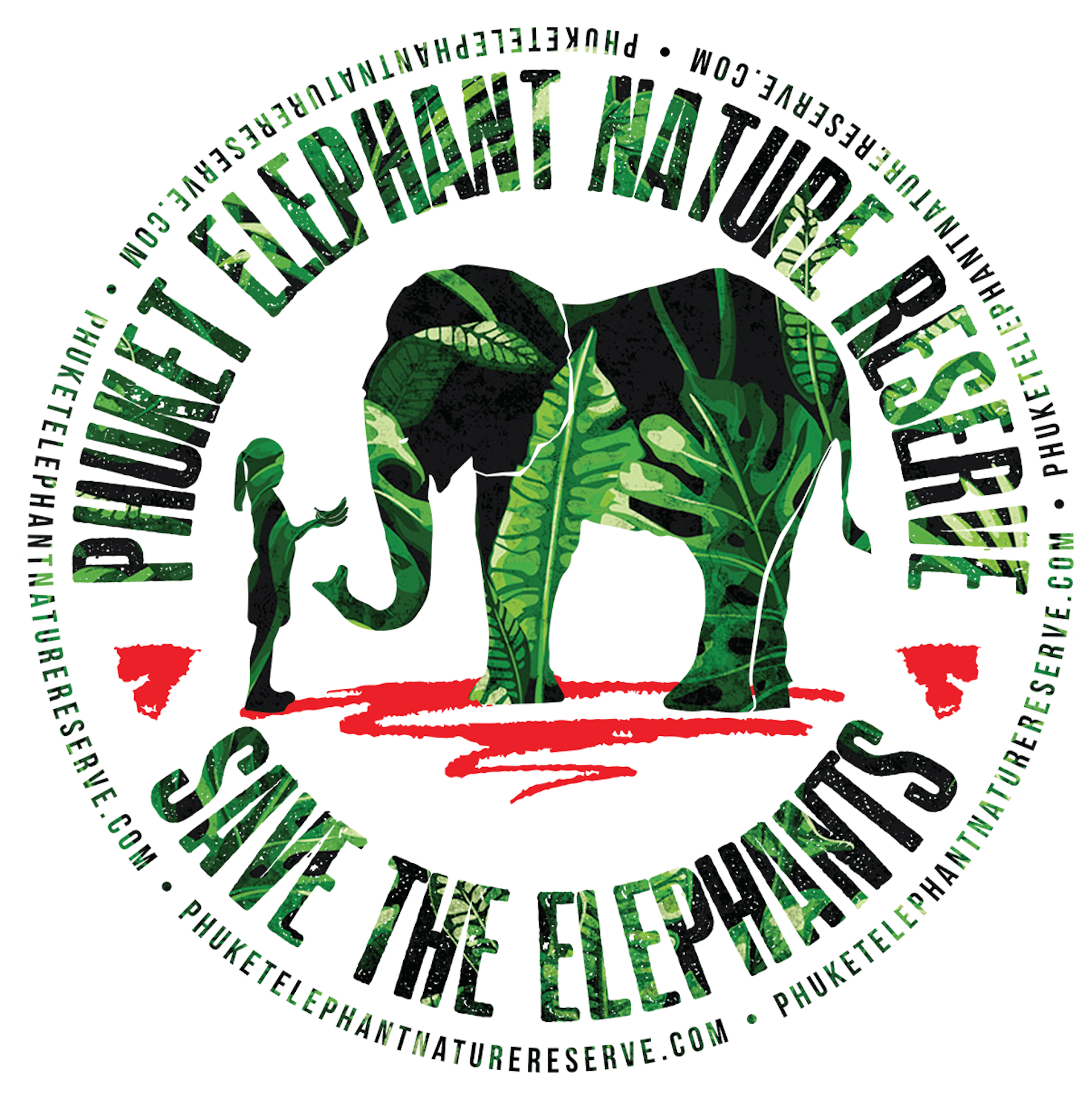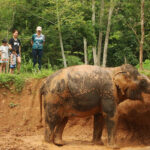Are elephant activities on your Thailand bucket list? As a leader in Phuket elephant tours and activities, we know how hard they are to resist! But did you know that elephants are much more than the gentle giants so many travellers hope to meet on a trip to Thailand? They are highly intelligent mammals with deep emotional bonds and an intricate social order.
Learning about elephant social structure is one of the most rewarding aspects of a visit to Phuket Elephant Nature Reserve (PENR). With us, guests enjoy ethical elephant tourism in Thailand by quietly observing these animals as they interact, rather than taking part in cruel activities that intrude on their natural behaviour.
Below, we take a closer look at the social structure of elephant herds in Thailand, offering some fascinating insights ahead of your visit to our ethical Phuket elephant sanctuary. Scroll down to get started, and if you have any questions for us as we go, please don’t hesitate to get in touch.
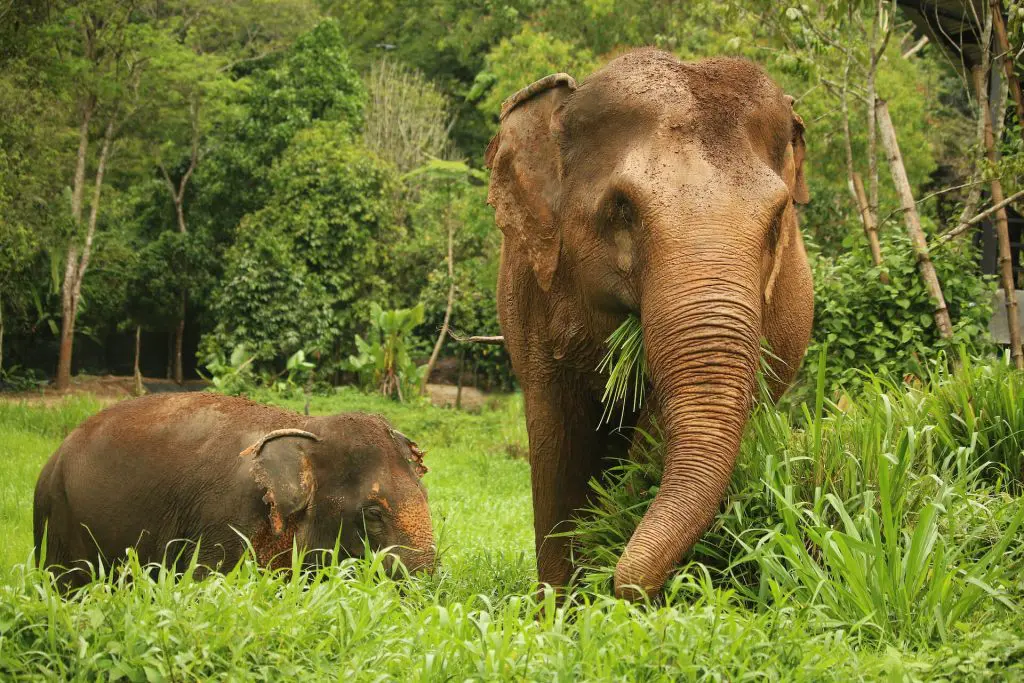
Why Elephant Social Structure Matters
For elephants, life in the wild depends on cooperation. These social structures are essential for survival, learning, and protection. In a herd, every individual has a role to play. Calves learn how to feed, bathe, and stay safe by copying older relatives. Youngsters are protected from predators and taught migration routes by the herd’s elders, while older females guide the group to resources.
Elephants are highly social animals, so disrupting these family structures can lead to decreased survivability and, in captive environments, increased aggression. The latter of these points is highly dangerous when you take into account that you shouldn’t underestimate the power of an elephant.
For rescued elephants who have been kept alone or forced to work, joining a group again can be vital to their physical and mental recovery. Sanctuaries such as PENR focus on recreating the close bonds found in the forest, so elephants can thrive together.
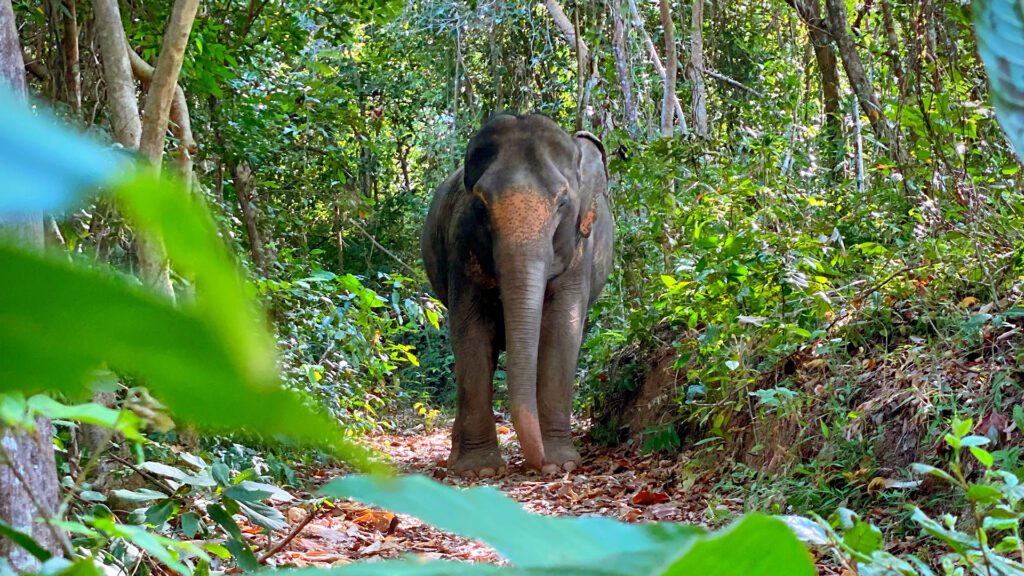
Anatomy of a Herd: Roles and Relationships
An elephant family group is led by a matriarch elephant, usually the oldest and most experienced female. Her knowledge of food sources, waterholes, and safe paths is key to the herd’s survival. Around her are daughters, sisters, and other females, along with their calves. Caring for the young is shared; females known as “allomothers” step in to guide or comfort a calf while its mother feeds or rests.
Males grow up within these elephant family groups until their teenage years. When they come of age, they leave the group to begin an independent life. Watching the respect younger animals show to the matriarch gives visitors an insight into the strength of elephant bonds and the value of age and experience within the herd.
Are you already keen to find out more about these remarkable animals? Be sure to read our Complete Guide to Phuket’s Elephants when you have finished here!
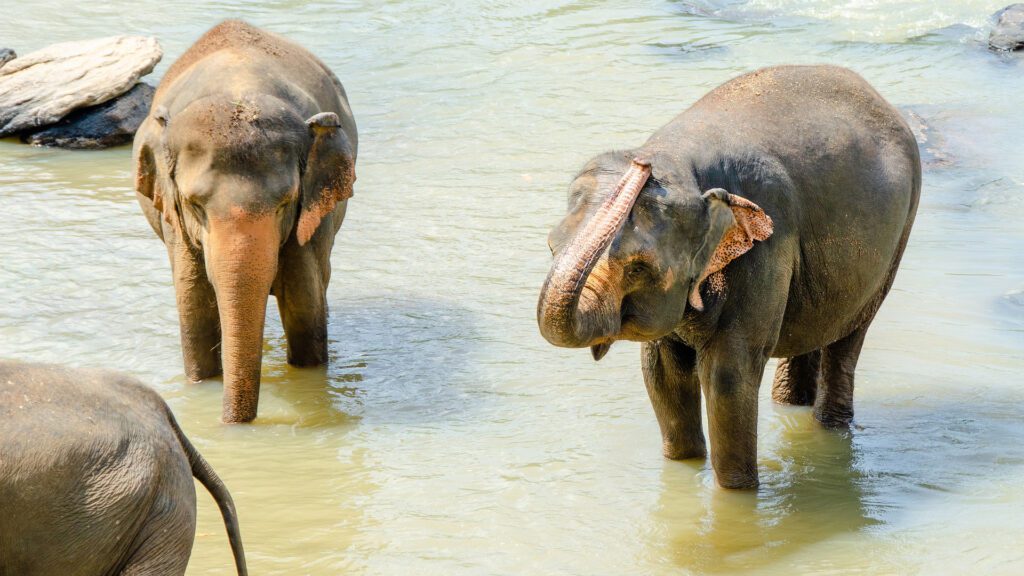
Male Elephants and Life Beyond the Herd
Once away from their mothers, male elephants (known as bulls) often live alone or form loose bachelor groups. Their movements are shaped by the search for food, water and opportunities to mate. At certain times, bulls enter a testosterone-fuelled state called musth, during which their hormone levels and energy surge. In the wild, this is when they challenge other males or seek females, while at sanctuaries, carers manage space and feeding so bulls stay calm and healthy.
Seeing a relaxed adult male at a responsible facility is a reminder that ethical care allows every elephant to follow its instincts safely. And this is just a small part of the huge importance of ethical elephant tourism in Thailand.
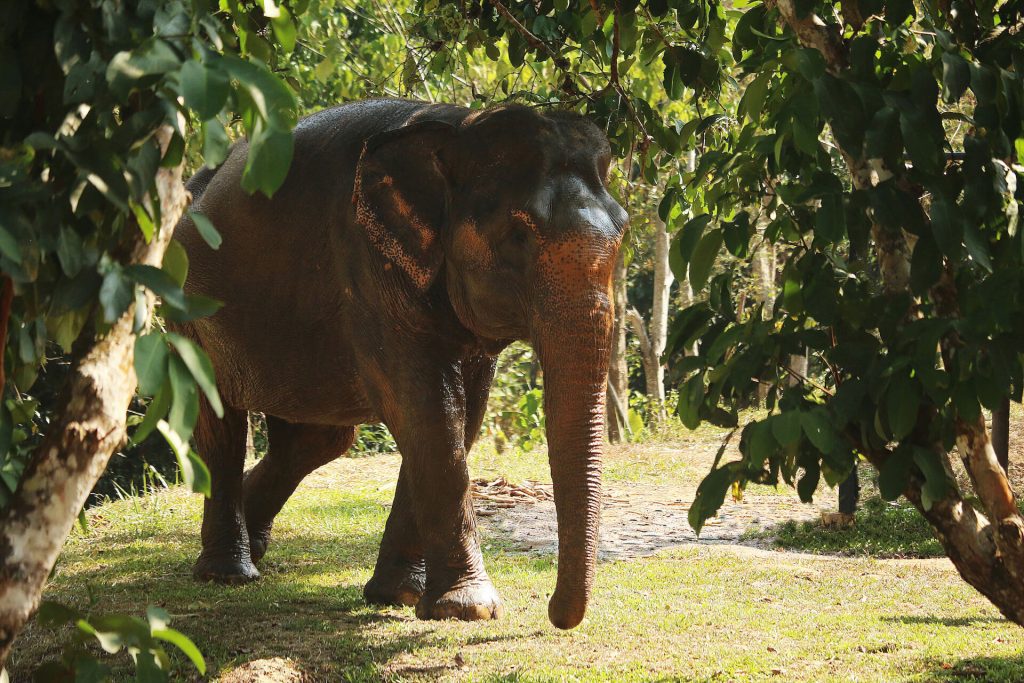
Communication: How Elephants Stay Connected
A herd depends on constant contact, and how elephants communicate is far more varied than most people realise. They use rumbles, trumpets, barks, and snorts, along with touch and body language. Low-frequency sounds below the threshold of human hearing, called infrasound, travel through the ground for several kilometres, letting elephants warn each other of danger or signal that water has been found.
At PENR, guides explain these signals while guests watch elephants gently touch trunks or flap their ears — subtle gestures that speak volumes in their social world. By observing elephants in Phuket in this way, you begin to understand that every movement has meaning, and that giving elephants the freedom to express themselves is as important as food and shelter.

Social Dynamics in Phuket Elephant Sanctuaries and Beyond
Many elephants at sanctuaries have lived for years without the comfort of a herd. Some arrive after decades of carrying tourists or performing in circuses and shows, often chained and deprived of their natural behaviours and instincts. Integrating them into new groups requires patience. At PENR, we study personalities before introducing animals, allowing friendships to grow at a pace each individual can handle.
In February 2025, we rescued our fifth elephant, Mae Boon Lai, from a situation of neglect and cruelty. This is a story we cover in the blog Meet Mae Boon Lai, Our New Rescued Elephant! As with all our new arrivals, introduction is a slow, gentle process that can’t be rushed. But today, Mae Boon Lai is rolling in the mud, exploring nature, and rediscovering the joys of just being an elephant.

Why Observing Elephants in Phuket is an Ethical Experience
As our rescued animals’ heartrending stories show, not every elephant encounter in Thailand respects the needs of the animals. Riding, circus shows, and forced bathing sessions cause stress and prevent natural behaviour. That’s why it’s so important for visitors to pick an ethical elephant sanctuary in Phuket, or anywhere else in Thailand.
PENR invites visitors to walk alongside elephants or watch them forage, with no pressure on the animals to perform. This slower, natural pace has become one of the most rewarding Phuket ethical elephant experiences. You will experience true elephant behaviour in a lush jungle environment, providing an authentic, meaningful experience that leaves you with a richer understanding of what makes these creatures so extraordinary.
Book Your Ethical Elephant Activities in Phuket!
Elephants survive and flourish because of their relationships. From the wisdom of a matriarch elephant to the independence of roaming bulls, every stage of life is tied to social knowledge. Sanctuaries like Phuket Elephant Nature Reserve give rescued elephants the space, companionship, and care they need, while offering guests the chance to see natural behaviour up close.
Are you ready to book your own cruelty-free elephant experience? Browse our full range of Phuket elephant tours and activities and see what makes the best fit for you. And if you have any pre-booking questions, please just contact us for all the answers you need.

